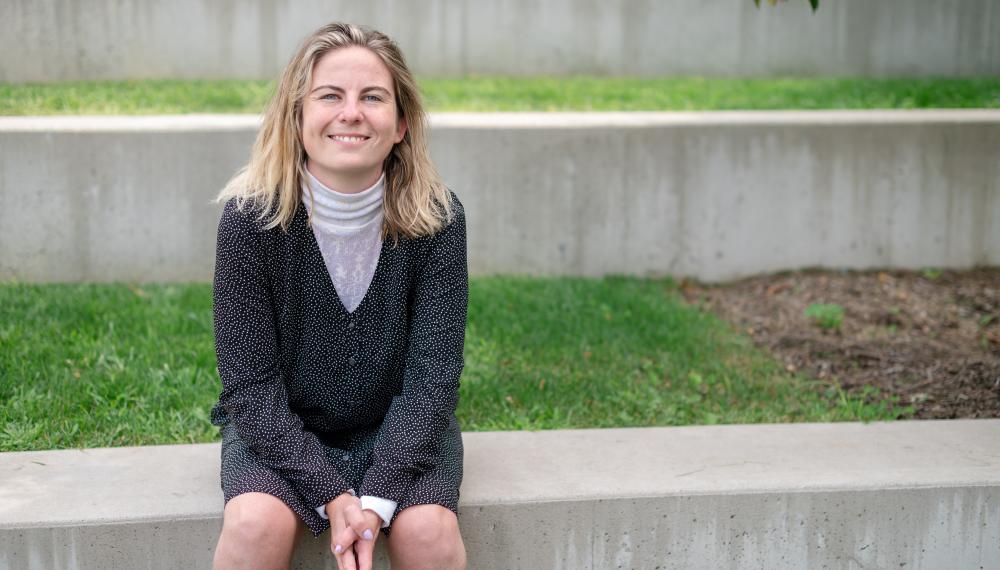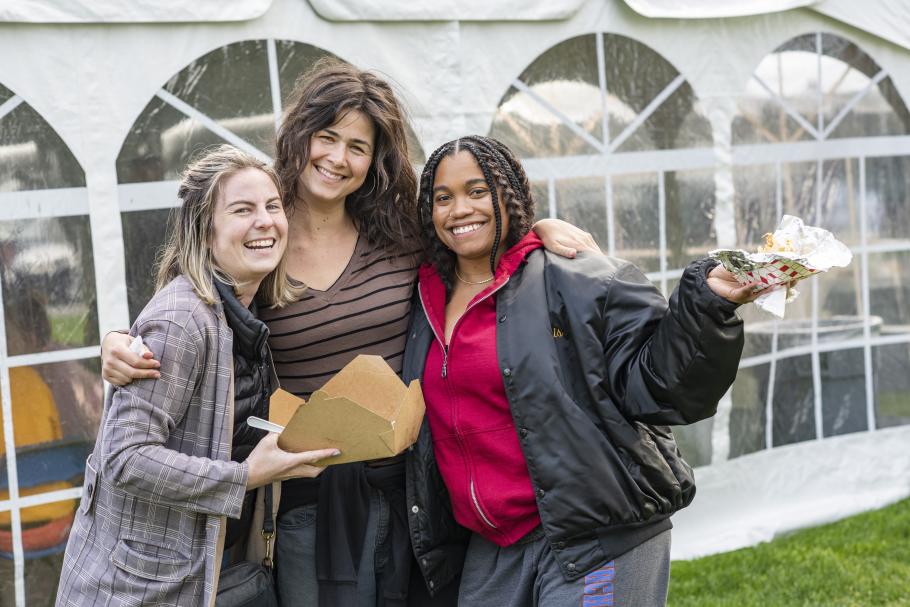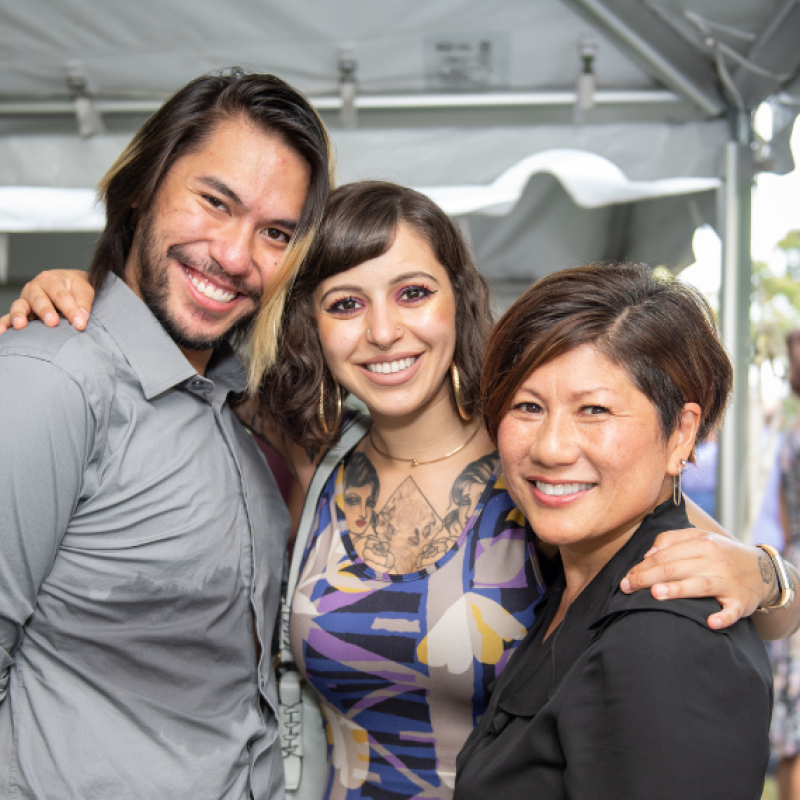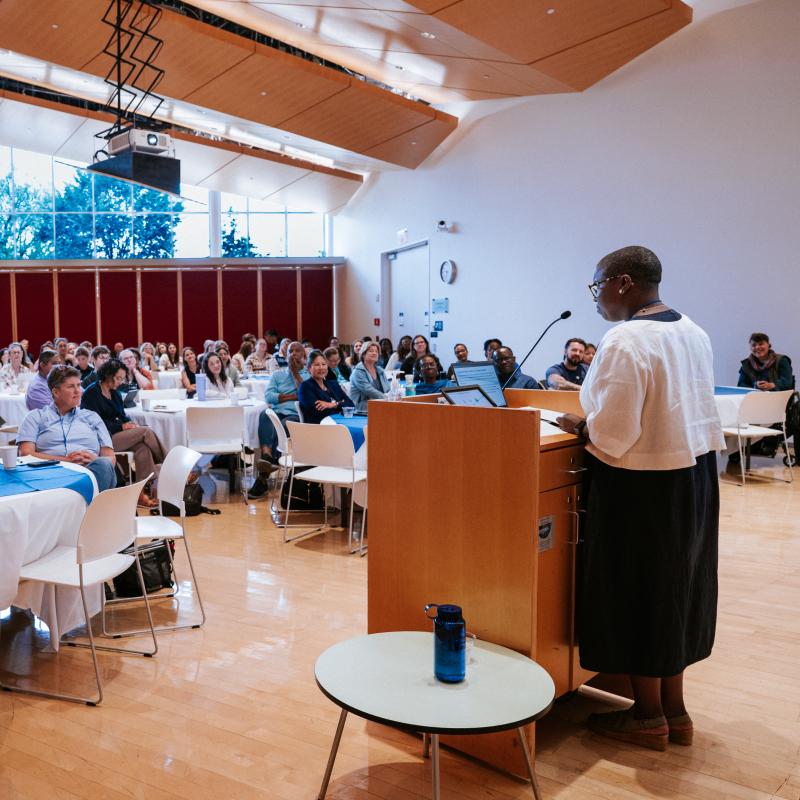
This fall Elizabeth “Libby” Quinn (she/her) started her “dream job,” aka her second-year placement in Portland, Oregon, at Oregon Health and Science University’s Institute on Development and Disability. Quinn’s career goals are to work with people with chronic illnesses and disabilities, to find ways to improve communication between health care providers and their clients, and further policy changes related to that goal. Now she’s part of a team of health care providers who treat children with developmental disabilities, and equally exciting to her, she’ll also be involved in research projects.

Her first week, “wearing my social worker hat,” she said, she observed a 9-year-old move through a day’s worth of evaluations, from pediatrics to audiology, speech therapy, occupational therapy… At the end of the day, the child’s family met with the team’s social worker, who set them up with temporary lodging (their home was several hours away), boxes of food, and gas money. “It wasn’t just about diagnosis,” said Quinn, “but also about the family’s basic needs.”
Quinn says, her experience as someone with a congenital chronic illness have “obviously colored my decisions about my career and what I want to do.” Having undergone a series of surgeries, Quinn is committed to helping children in similar situations. Encouraging patients and their families to ask questions and feel comfortable and confident is an essential component of medical care, Quinn believes.
“Not every doctor with medical expertise has a good bedside manner. You might be seeing a doctor for the first time who asks very personal questions, and they’re not especially warm. It’s uncomfortable. A doctor may wrongfully assume that if patients have concerns, they’ll bring them up, without perceiving their discomfort, so there’s a lack of communication. I’m interested in how ‘small lifts’—changes, for instance, to the intake process—can make a big difference.”
“I wasn’t looking for just role play after role play but to get to know and work with clients in their own environments, both internally and externally.”
Quinn went into her first-year practicum with no direct clinical experience, although her courses the summer before had helped prepare her. “For the first time, I was the ‘expert,’ though, of course, I wasn’t. I was terrified,” she recalled. “But working in a community mental health agency with children ages 6 to 18, providing therapy, attending school meetings, learning about case management and the foster care system, as well as seeing clients in inpatient treatment, I found I could handle it, and I learned so much.”
The second SSW summer, said Quinn, “The pieces really came together.” Courses on policy and research broadened her perspective; those on antiracist, grass-roots organizing deepened her belief in the importance of being part of the community you serve.
Quinn was attracted to SSW because of the full-time “immersive” placements, its psychodynamic orientation, and its emphasis on social justice. “I wasn’t looking for just role play after role play,” she said with a laugh, “but to get to know and work with clients in their own environments, both internally and externally.” And her SSW experience is enabling her to do just that, now, and in the future.


